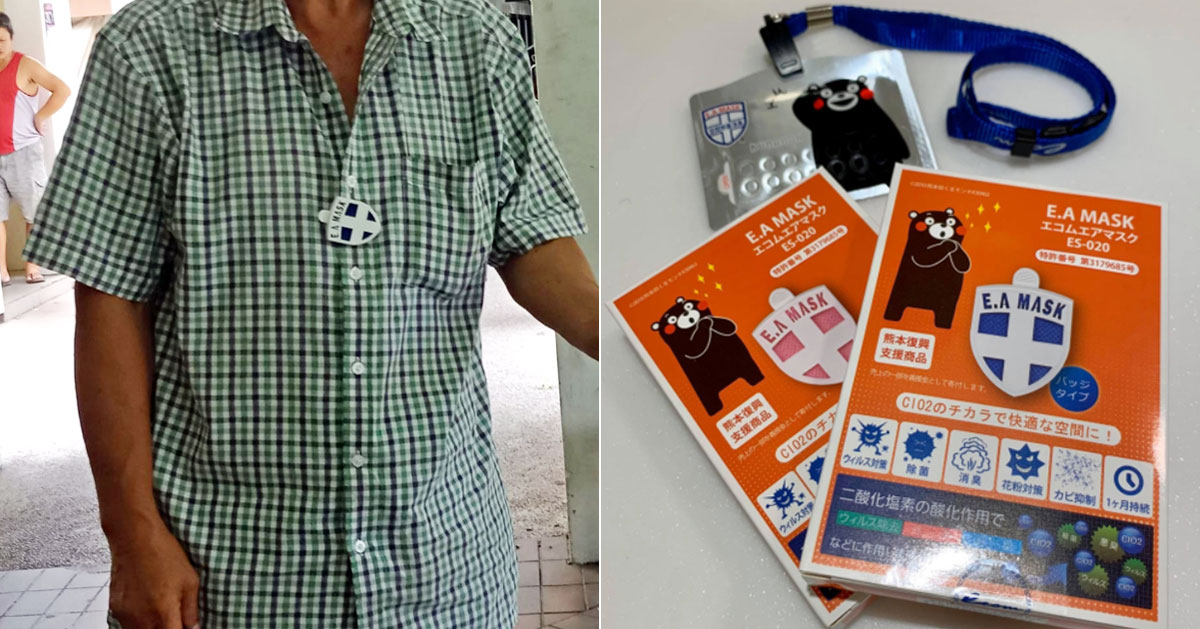Some people in Singapore are going beyond wearing face masks as a precautionary measure against Covid-19.
They are putting their trust in body-worn badge-like devices, such as the "EA mask" badges and "health tag" lanyards, that have been marketed as being able to inactivate viruses and kill bacteria.
These smallish, light-weight devices are particularly popular among senior folks, who probably find such gadgets more comfortable than donning face masks in the hot and humid weather.
Here are some examples:
 Photo by Zheng Zhangxin.
Photo by Zheng Zhangxin.
 Photo by Zheng Zhangxin.
Photo by Zheng Zhangxin.
These devices are being sold online, and even at high-end departmental stores such as Takashimaya.
On the product's website, EA masks sell for S$16.50.
They have even been misleadingly advertised to "work harder than a conventional mask", because of the chlorine dioxide that the gadgets release.
 Screenshot from Takashimaya website.
Screenshot from Takashimaya website.
The advertising copy read, "EA Mash and EA Bear gives you a 1m radius protection around your body 24/7".
Japan study finds body-worn devices do not kill influenza viruses
A 2017 study in Japan looked into four brands of such devices and found that the viral load in the air is similar to that found close to all devices tested, suggesting that these devices are not effective at all.
The study said:
"Viral loads were found to be similar between viral samplings in the air collected from the site close to the device for all devices and in the controlled air, indicating that no virucidal activity was found against the air-borne influenza viruses with selected devices in these conditions."
Malaysian agency warns of tags that claim to kill Covid-19
More recently, Malaysiakini also reported on March 30 that Malaysia's National Poison Centre issued a Facebook post to debunk claims that such products can ward off Covid-19 for users.
Moreover, the "heath tags" lanyards that emit chlorine dioxide can act as irritants toward the respiratory system, the authorities warned.
The greater concern among the authorities is that people might blindly believe in these body-worn devices, which gives users a false sense of security, and even use them as substitutes for masks.
Such products have created much online chatter as well, with comments dismissing them and their purported efficacy:
 Screenshot via ASK meta filter.
Screenshot via ASK meta filter.
 Screenshot via ASK meta filter.
Screenshot via ASK meta filter.
When in doubt, some common sense helps:
 Via Reddit.
Via Reddit.
If you like what you read, follow us on Facebook, Instagram, Twitter and Telegram to get the latest updates.
